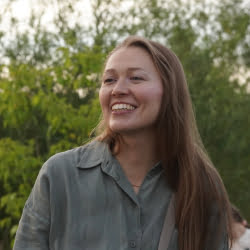Information
Let’s Celebrate the Winter Solstice Together!
On Wednesday, December 18th, we’ll host an international carols workshop. We will be learning traditional carols from around the world. The event will be bilingual – in Polish and English – to bring as many cultures as possible into one room. You don’t need to know how to sing, as this time we’re focusing on the social aspect of singing. It’s all about having a good time, meeting new people, and learning about caroling traditions.
We’ll provide song lyrics, warm tea, candles, and plenty of chairs. If you’d like, feel free to bring interesting winter drinks or snacks to share.
When and where?
FREE ADMISSION
What is “KOLĘDA” and what is “CAROL”?
The Polish word “kolęda” comes from the Latin kalendae, which in Ancient Rome referred to the first day after the new moon, marking the birth of the new lunar cycle. From this root also comes the word calendar. Delving deeper into the etymology, the verb calere means “to glow” or “to burn.” Kalendae Ianuariae was the first day of the year, a festival dedicated to Janus – the god of light, beginnings, and transitions. On this day, people exchanged wishes and gifts as good omens.
In Slavic countries, the word kalendae evolved into kolada, koleda, kaleda, and kolęda, becoming closely associated with the winter solstice – the birth of the new sun, the triumph of light over darkness, and the start of a new cycle. Like any period of transition and transformation, it was considered a magical time when the sacred mingled with the profane, and everything was different from usual. To gain the favor of higher powers, people performed various rituals, including kolędowanie (caroling).
Before Christianity, Slavic peoples celebrated Szczodre Gody (Bountiful Feast) during the winter solstice. To this day, in areas east of Poland, New Year carols wishing prosperity are called “szczedriwki”, filled with luminous symbolism – gold, stars, the moon, and the sun. With the spread and consolidation of Christianity in Europe, Slavic carols began to incorporate themes of the new dominant religion. Around the 17th century, traditional Slavic carols and newly created folk songs about Christmas, often enriched with everyday themes, evolved into pastorałki (shepherd songs). Meanwhile, “kolędy” became songs about the birth of Jesus Christ, performed in churches and bearing a sacred character.
“A carol is a festive song, generally religious but not necessarily connected with Christian church worship, and sometimes accompanied by a dance. A caroller (or caroler) is someone who sings carols, and is said to be carolling (or caroling).
Today the carol is represented almost exclusively by the Advent carol, the Christmas carol, and to a lesser extent by the Easter carol; however, despite their present association with religion, this has not always been the case.
https://en.wikipedia.org/wiki/Carol_(music)
Leading
Speaker
-
 Aleksandra Kowalczyk
Aleksandra KowalczykSinger, educator, performer. She studied cultural studies and Slavic studies at the University of Warsaw and Bulgarian folk singing at the Academy of Music, Dance and Fine Arts in Plovdiv. She focuses on voice, sound perception, and interculturality. She founded the experimental vocal improvisation group Syreny. She has collaborated with the contemporary music magazine “Glissando” and the Węgajty Theater. She sings in the folk band Córy Mary. She is active in the Contemporary Art Foundation on projects related to performance and traditional vocal techniques. She conducts workshops on voice emission and traditional singing, as well as sound walks. She coordinates the Voice Spinning Mill vocal workshops.

